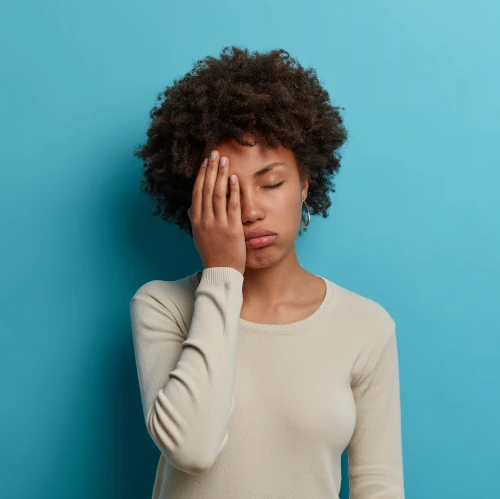by Elayna Alexandra
I have always been jealous of people who seem to do great on four to five hours of sleep. I function very poorly on anything less than eight. When I get less sleep, I am in increased pain and I feel fuzzy, reactive, easily frustrated, and depressed. I often slip into the inviting pit of being a victim. None of this is where I want to operate from, so I must prioritize sleep.
Knowing we need sleep and getting the sleep we need are two different things, though. As someone who has had many surgeries, I have noticed sleep’s crucial role in promoting recovery and healing. But I also have always struggled to get the sleep I need. The darkness of night is often when the pain monsters rear their heads. They seemingly come out of nowhere, even after days I have managed well. They disturb the stillness and quiet, making it incredibly difficult to find the restful sleep that my body desperately needs. During childhood and now as an adult, I have had periods of time when I actually dread going to bed because of the painful, restless, sleepless torture that awaits me. And since becoming an amputee less than two years ago, I have occasionally experienced sudden, intense phantom pain that rips me out of the deepest sleep and causes me to cry out. It’s the most wracking pain imaginable, and it’s totally nonsensical—something I literally cannot touch.
The day after a sleep-interrupted night, I cannot escape the impact. I am tired and emotional, my thoughts muddy, my perceptions clouded. I used to wonder why I can’t find a way to function after a restless night. When I plunged into the scientific research, I discovered the reason: Getting less than 7 to 9 hours of sleep has significant health effects, including things like increasing our risk of cancer. According to the World Health Organization: “The main effects of sleep deprivation include physical effects (sleepiness, fatigue, hypertension), cognitive impairment (deterioration of performance, attention and motivation; diminishment of mental concentration and intellectual capacity; and increased likelihood of accidents at work and during driving) and mental health complications. Inadequate rest impairs the ability to think, to handle stress, to maintain a healthy immune system, and to moderate emotions. Maintained, total sleep deprivation is fatal in some animal species.”
In other words, my struggles to cope with poor sleep aren’t strange at all. My body’s systems have just been giving me very strong signals I can’t ignore about the sleep I need.
I have searched high and low for support with sleep, but only one thing has really helped. It took me years to discover it, after trying many different things that provided temporary or partial relief (at best). Magnesium Calm is supposed purported to be good for you and to help with sleep, but personally I didn’t notice much success with it. Periodically I have tried cannabis, which Matthew Walker discusses in his book Why We Sleep, and while it has given me some relief in the short term, it resulted in incomplete sleep cycles that still left me feeling tired. Valerian root often leads to very vivid bad dreams for me. I have cut down on my caffeine consumption, and I don’t drink anything caffeinated after 2 pm, and this has had a somewhat positive effect. I occasionally find melatonin helpful in small doses, if I don’t use it too often. Acupuncture has offered support for many things, including sleep, but even this is not the single quick solution I was hoping for. I have also used sleep medication, but this has been the least helpful solution and always leaves me feeling drugged and not at all refreshed.
The fix that I have found most useful is a sleep ritual. Each night I set aside a wind-down time of at least an hour, which I use to journal and process any disruptive emotions. I often write “worry pages” during this time to get out the stress of the day, and I frequently sip on a cup of Bedtime tea while I write. Sometimes I practice a gentle yoga routine, with long slow poses and legs up the wall for 5 to 10 minutes. Closing out with 5 to 15 minutes of meditation completes my wind-down routine, enabling my body to transition more smoothly to restful sleep.
While much research supports the reduction/elimination of “blue light” screens before bedtime, I have found myself not particularly sensitive to this. Watching a chill show before bed on my iPhone or tablet can support me in unwinding—emphasis on chill. There are definitely shows that disrupt my sleep rather than promoting it, and those have to be eliminated anywhere close to bedtime.
My sleep ritual helps to prepare my body and mind for the best zzz’s possible. And if I find myself lying in bed, still struggling for the elusive shut-eye, I practice one of my favorite breathing exercises—either box breathing, or simply extending the exhalation longer than the inhalation. Sometimes I slow my breathing down more and more with each breath, playing a game with myself to see how long I can exhale until mindful breathing dissolves me into sleep.
If you are feeling exhausted and you’ve tried a wide range of approaches without improving your sleep, don’t give up. Discuss all your options with your doctor, and work with your medical team to find the support you need. Often seeking the support of a functional medicine doctor or a naturopathic practitioner can be helpful. Keep at it until you find a solution that works for you.
Elayna Alexandra is a life coach, strategist, and writer. Visit her online at elaynaalexandra.com or on Instagram at @elaynaalexandra.
